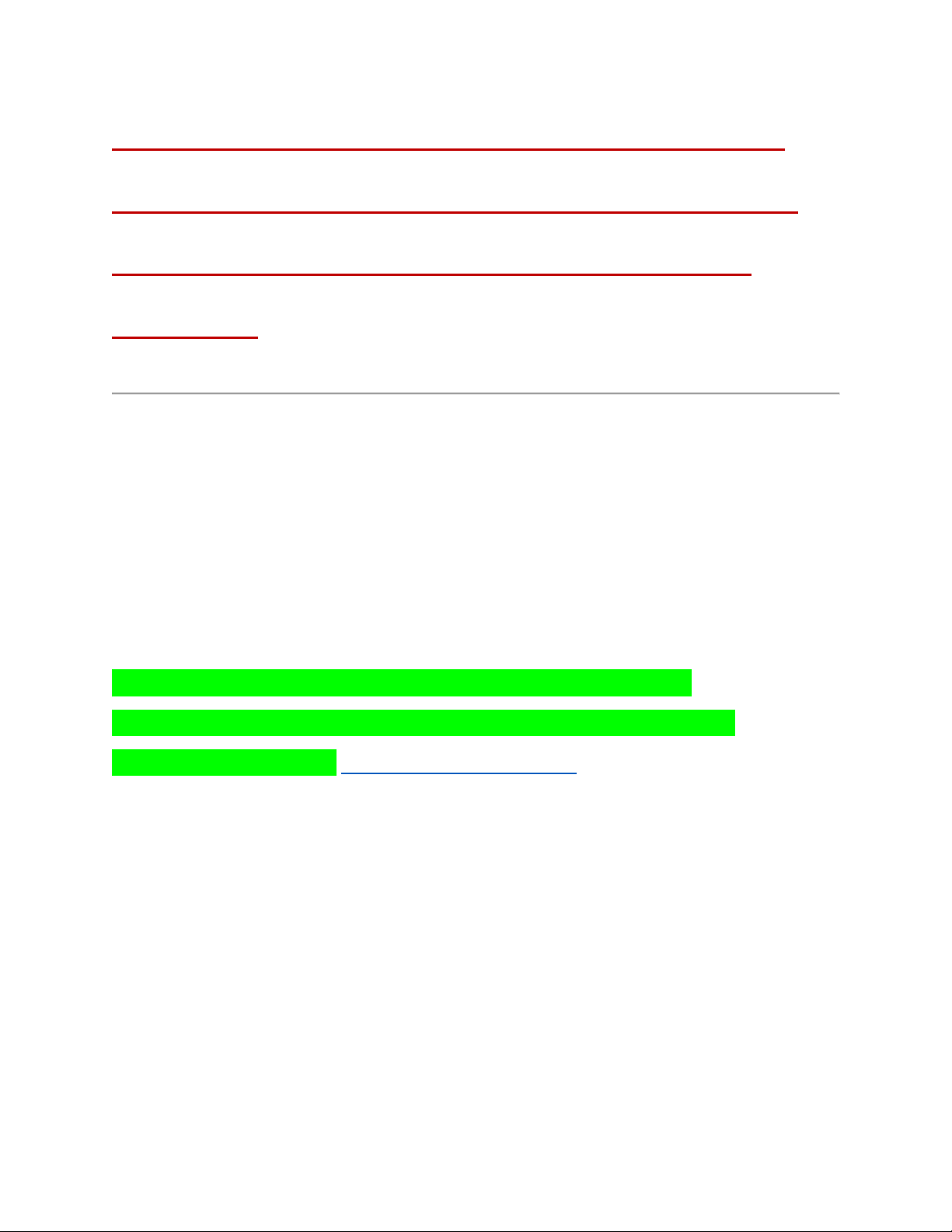
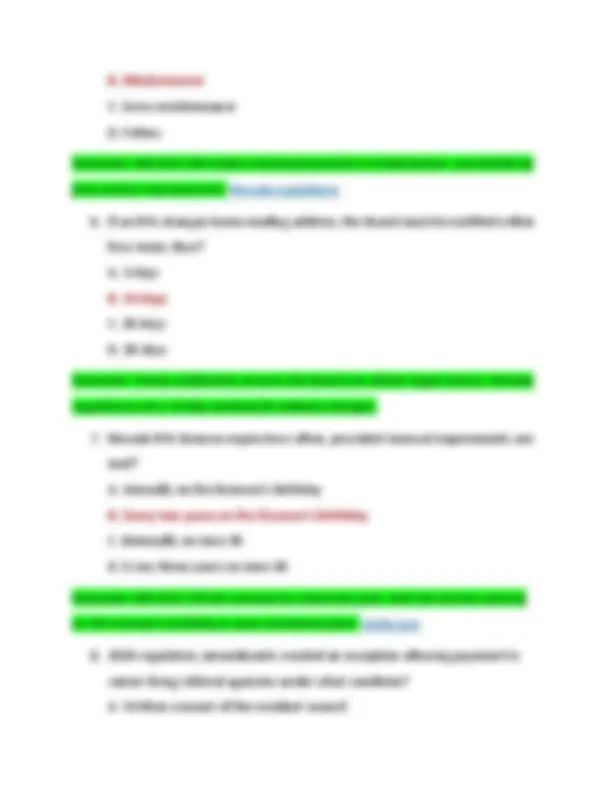
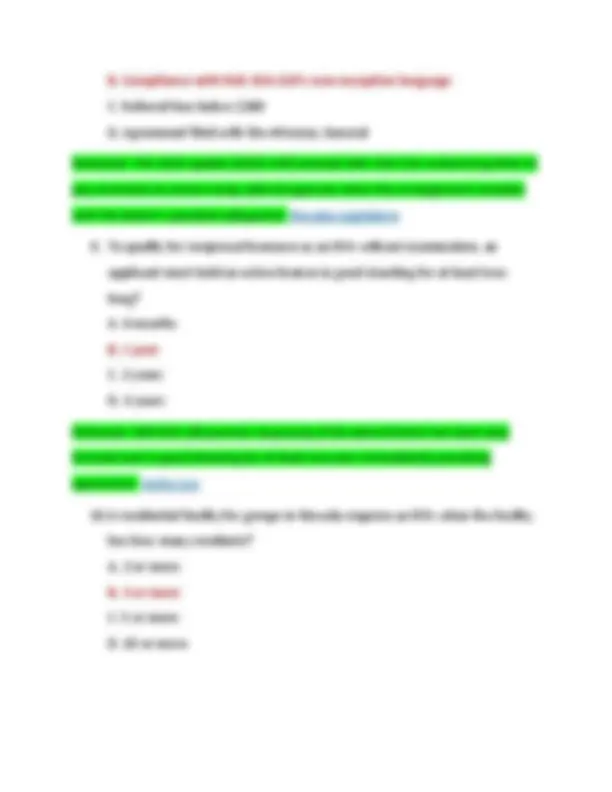
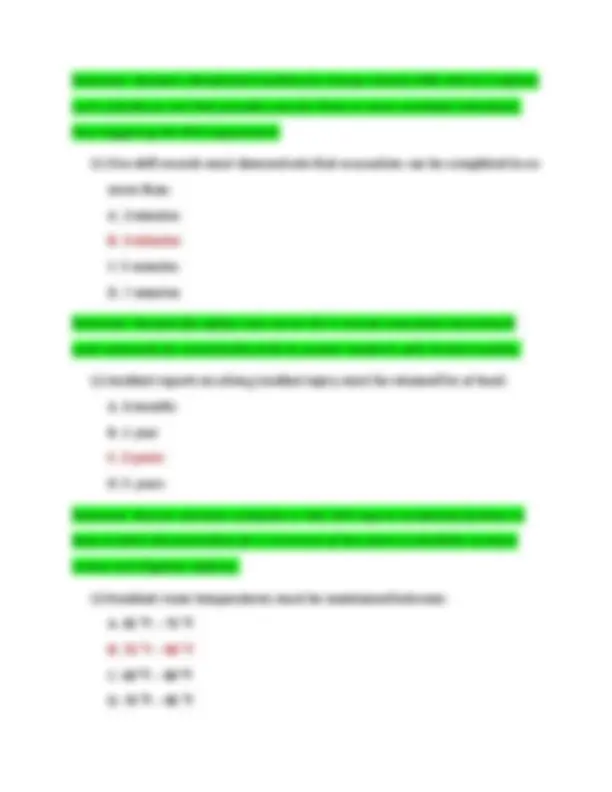
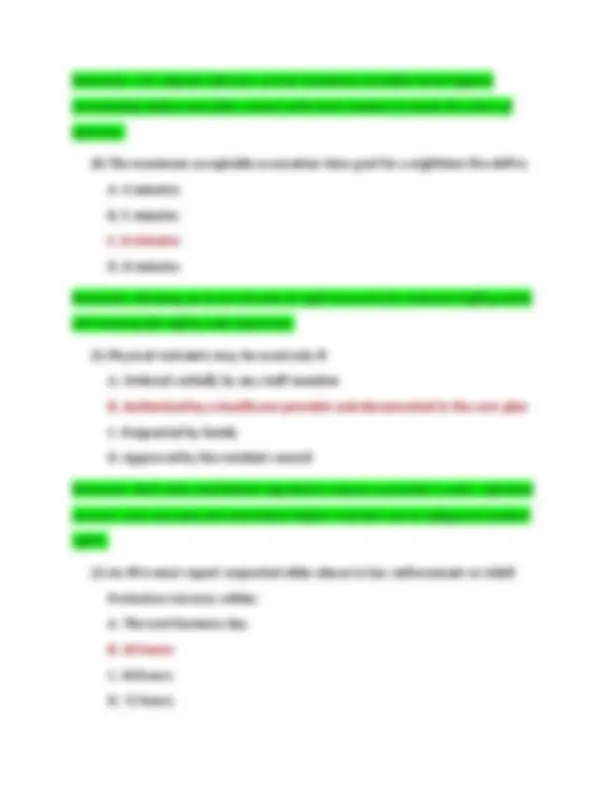
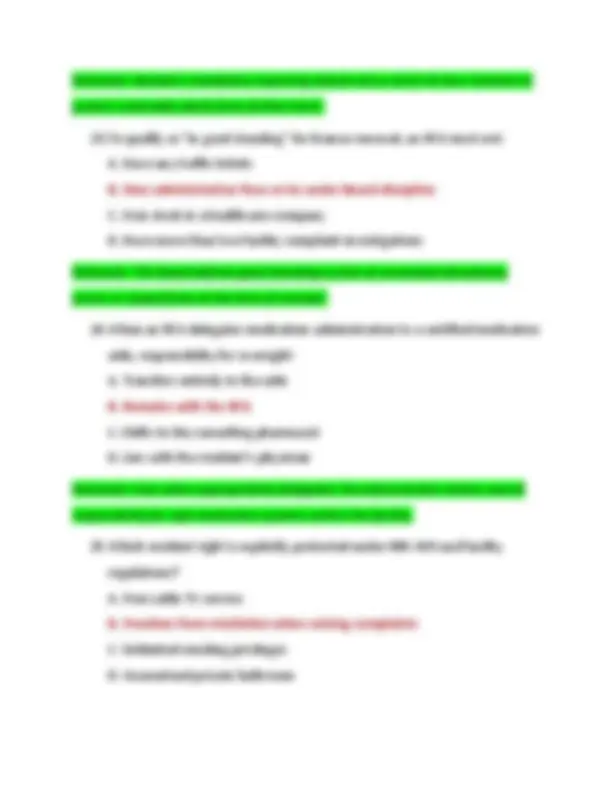
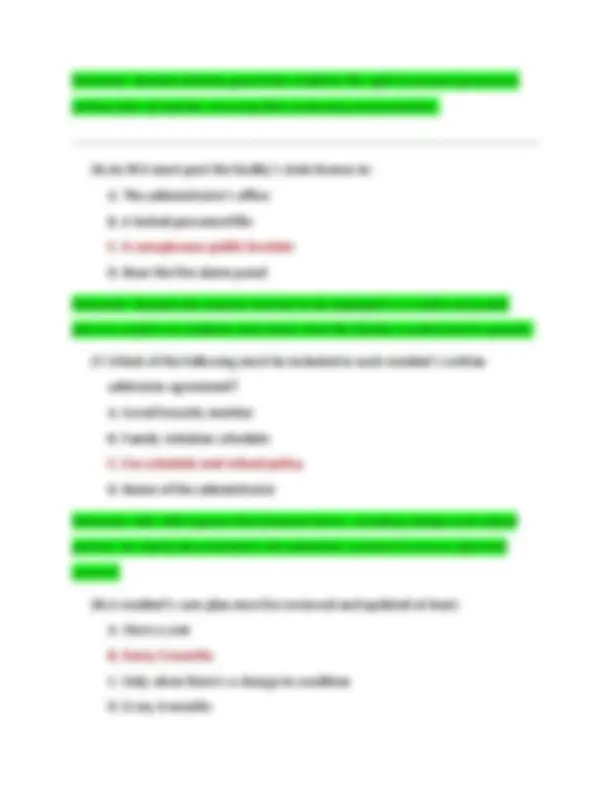
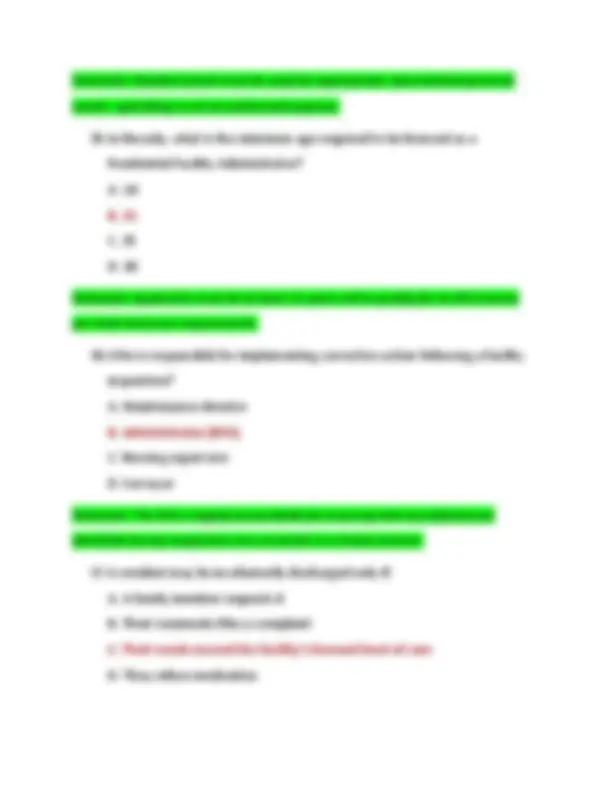
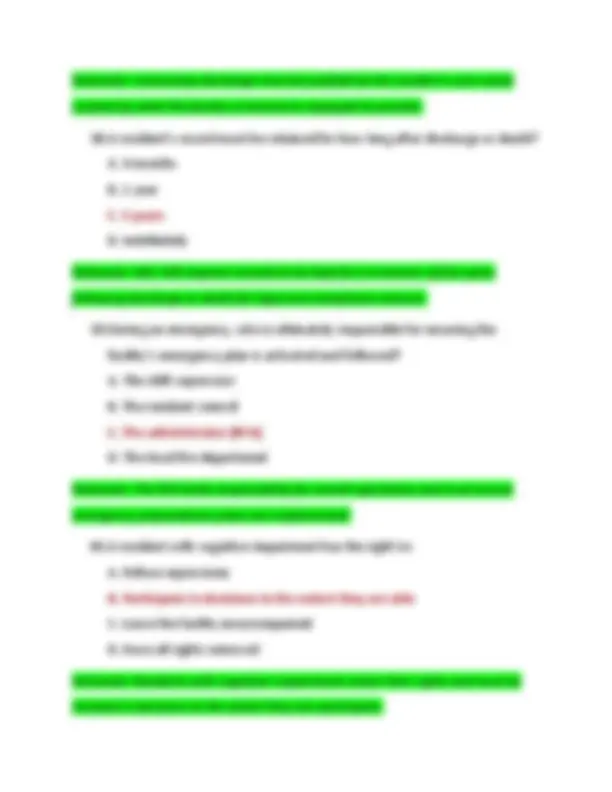
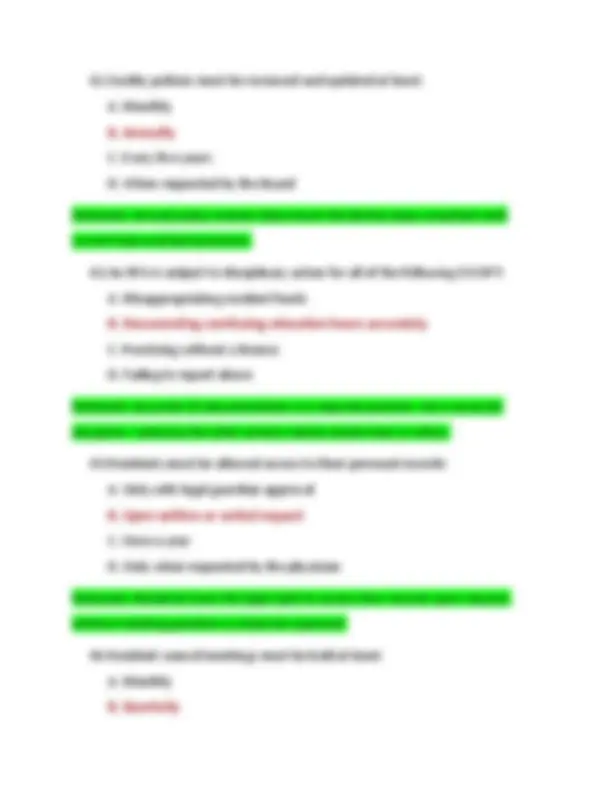
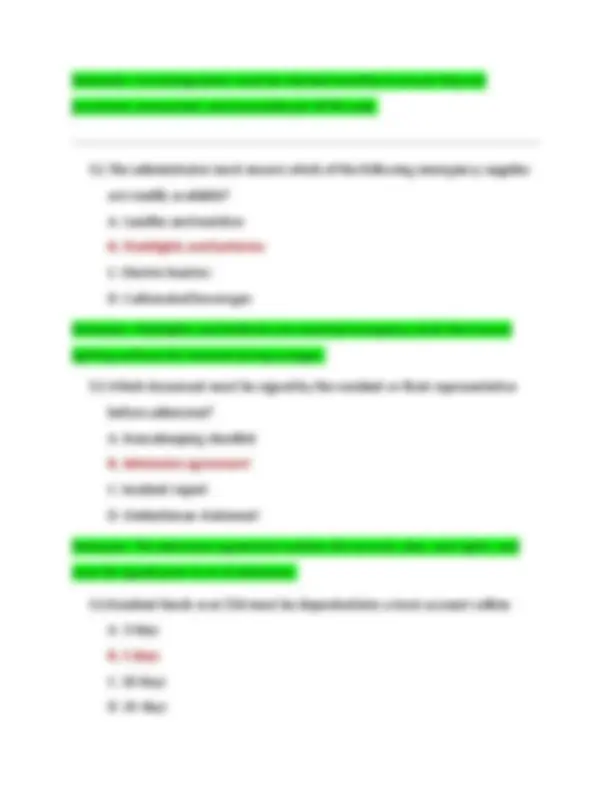
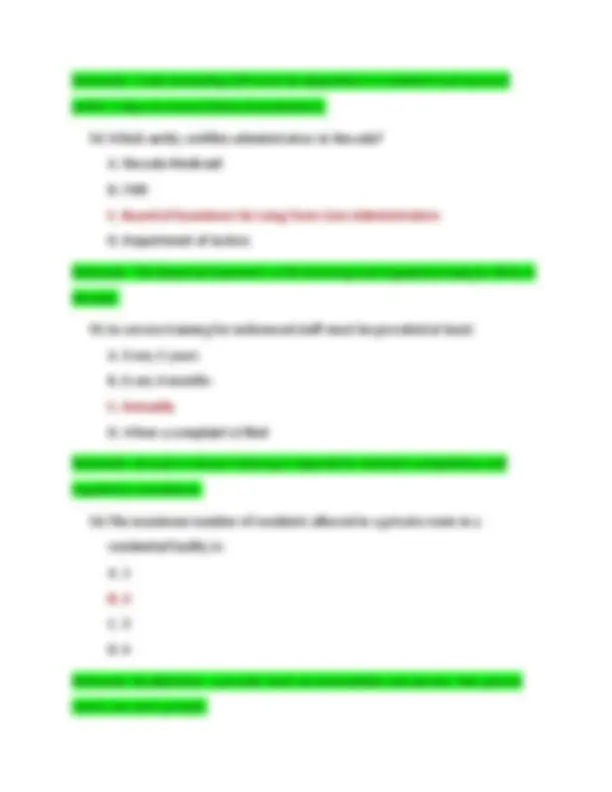
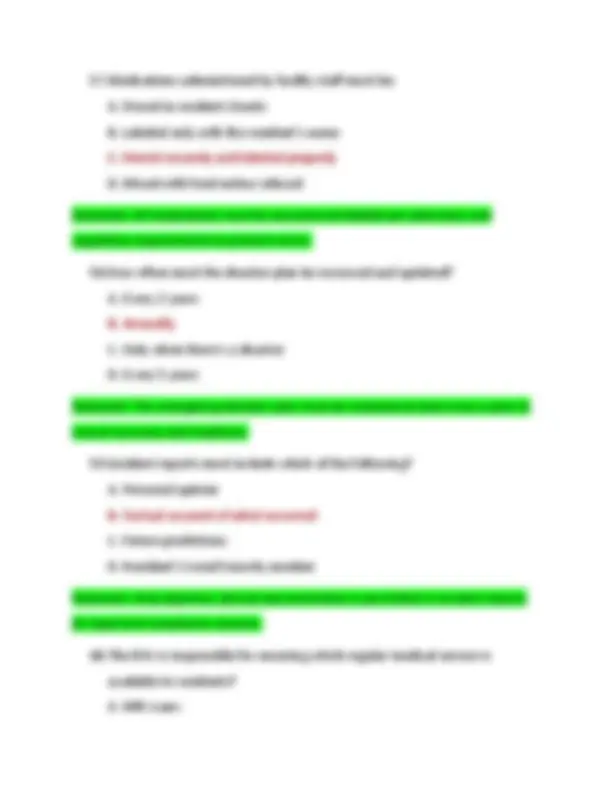
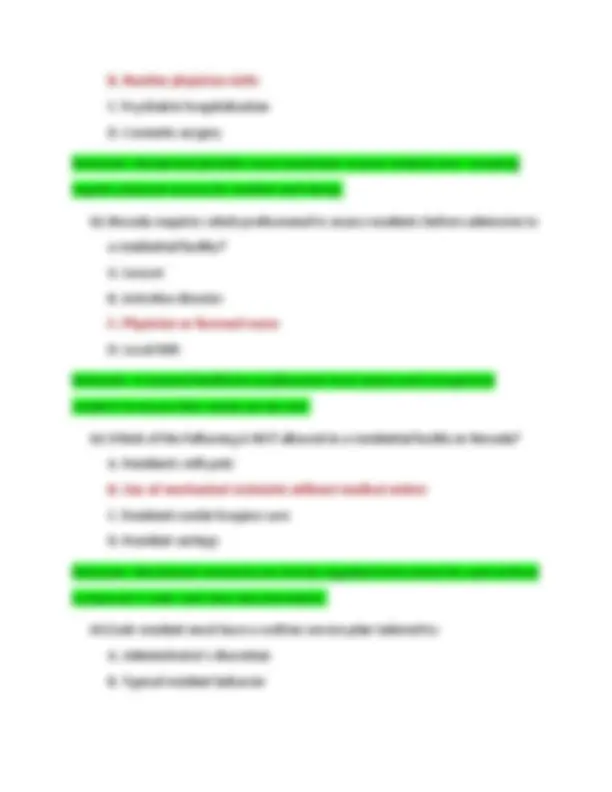
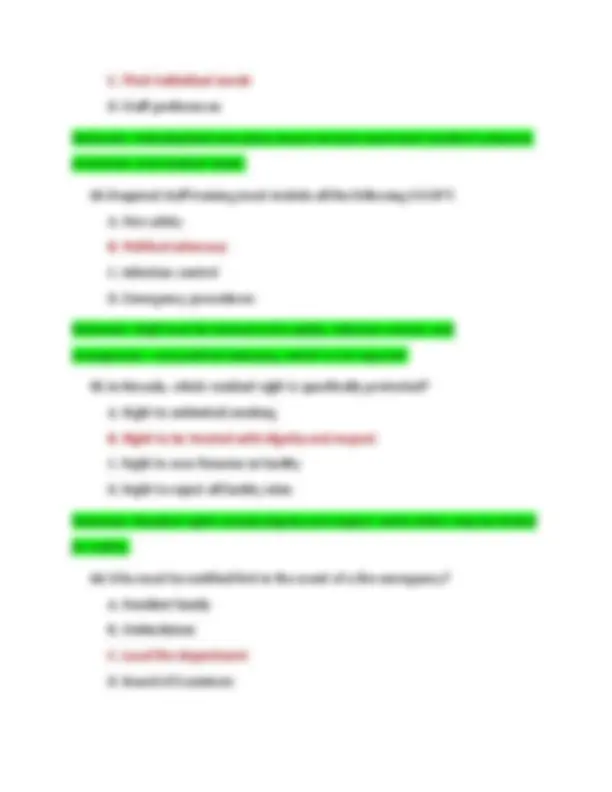
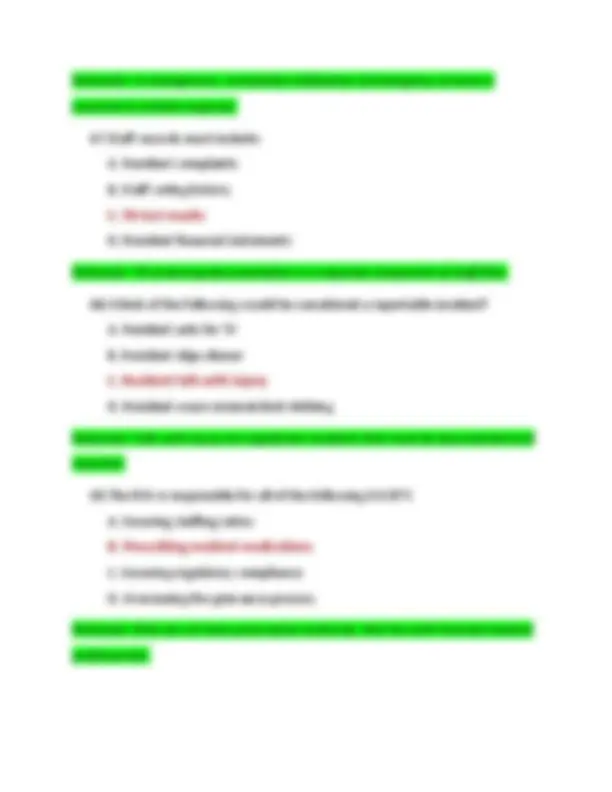
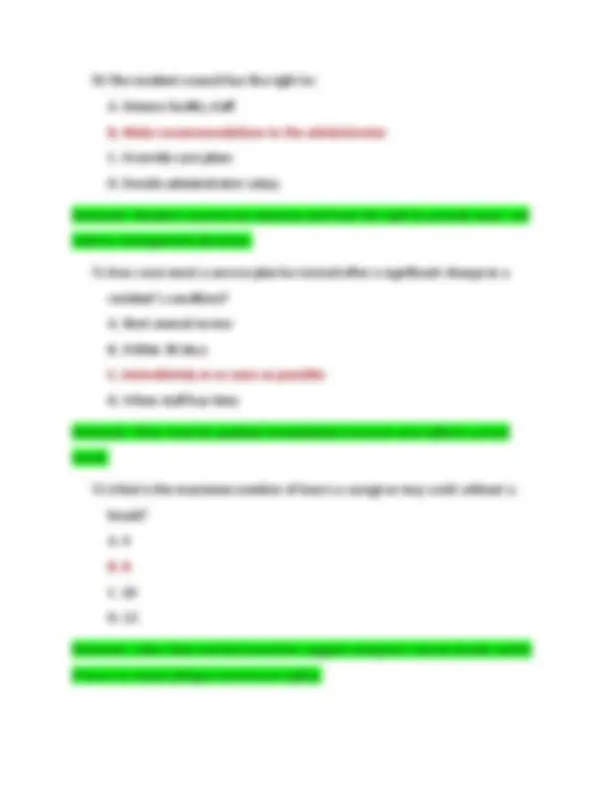
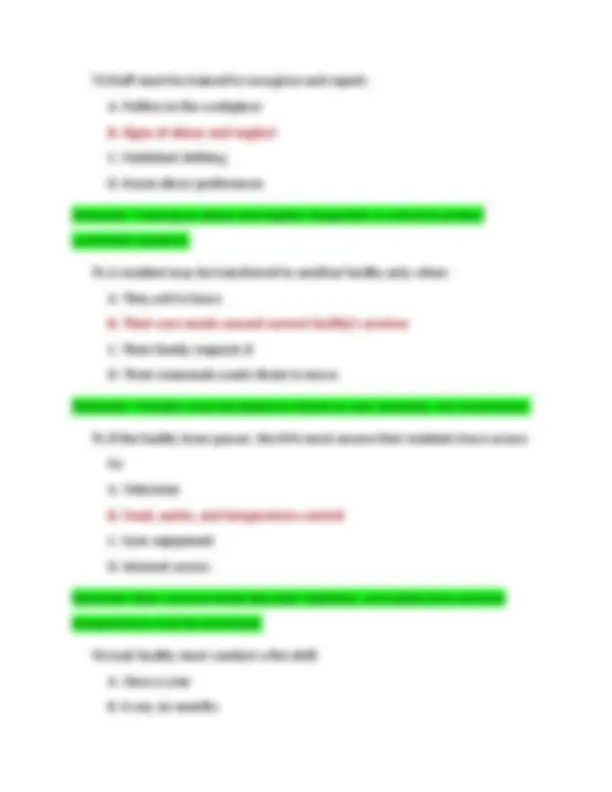
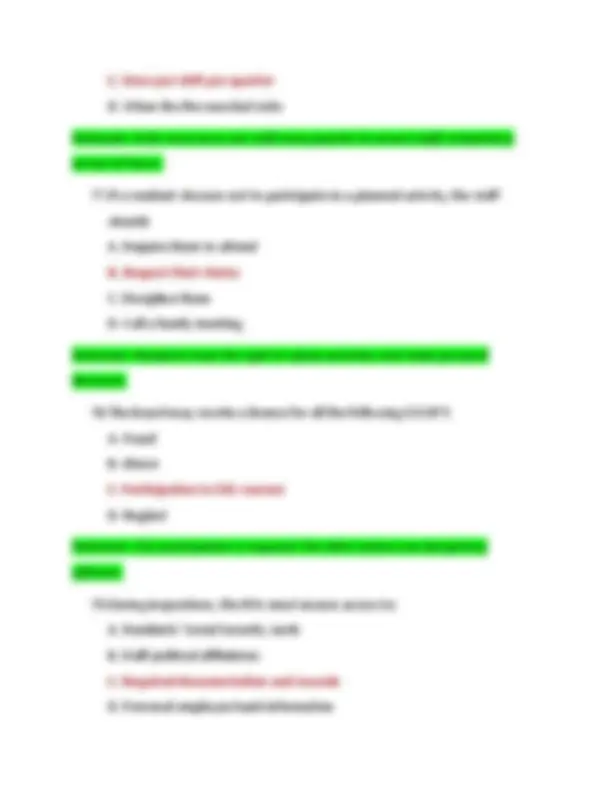
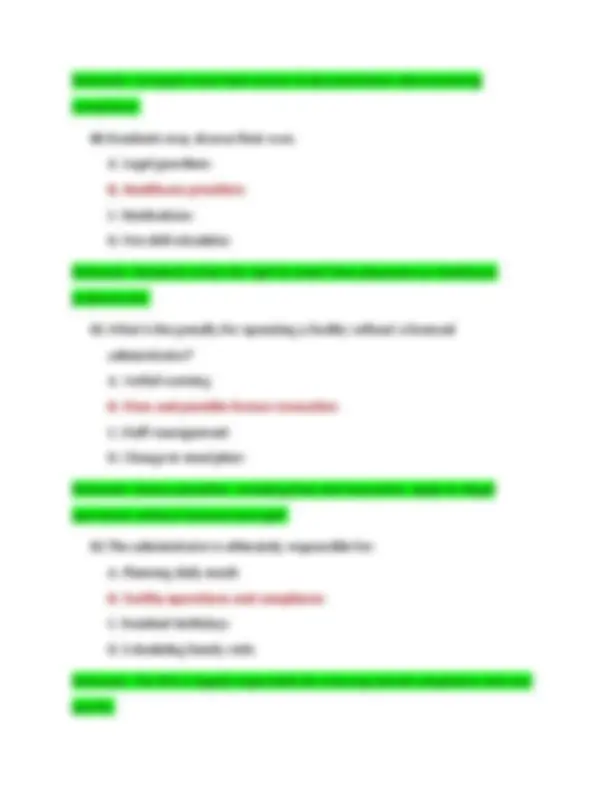
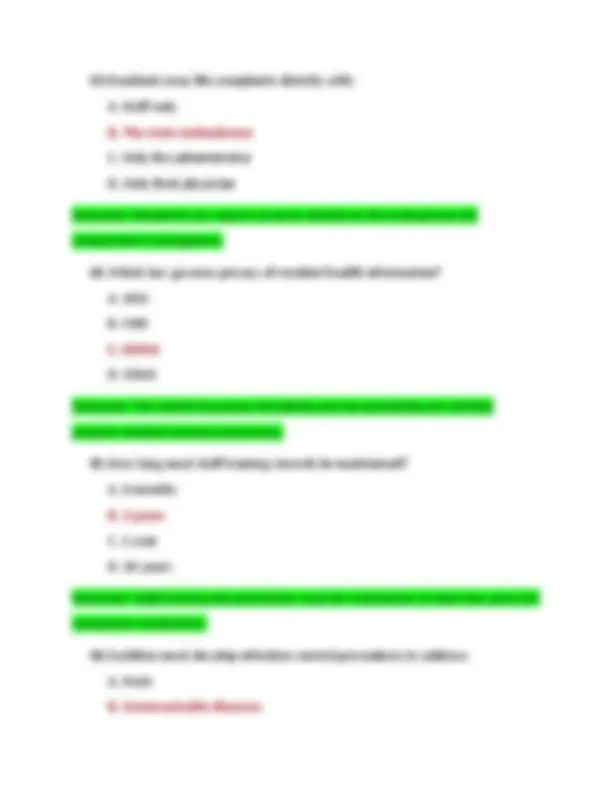
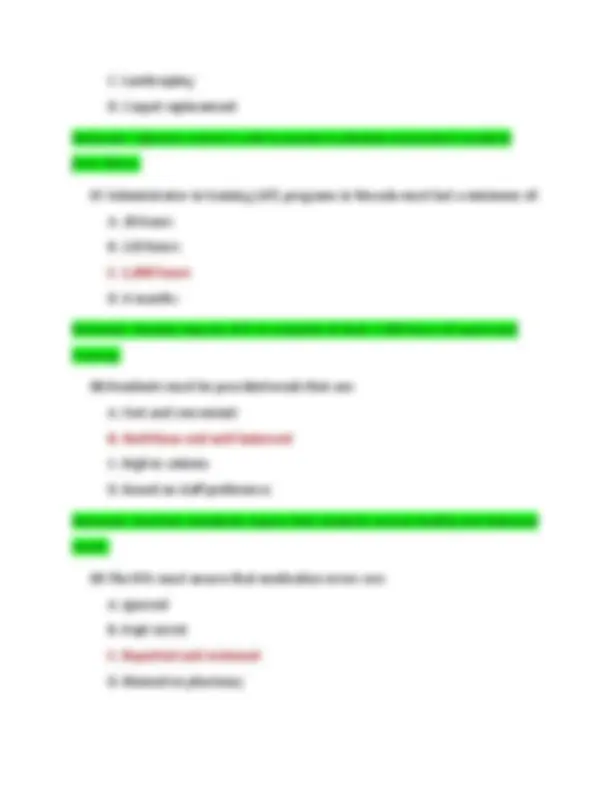
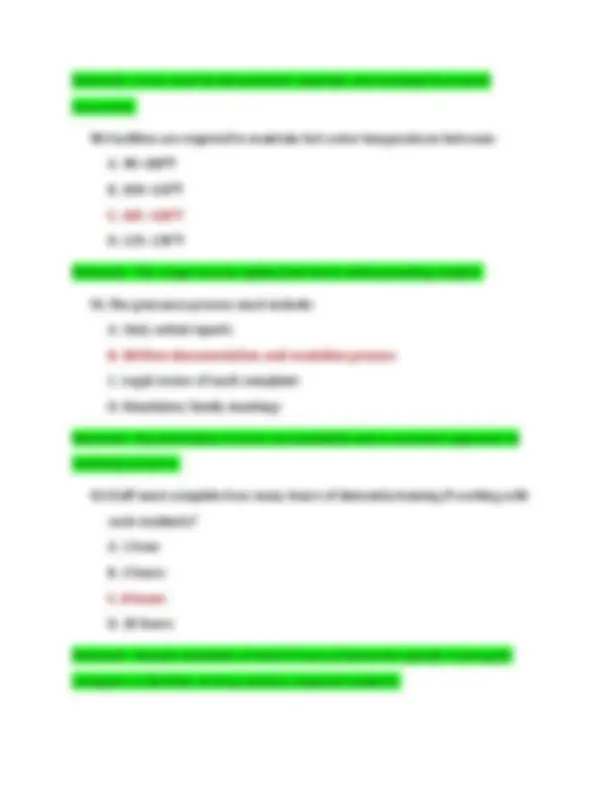
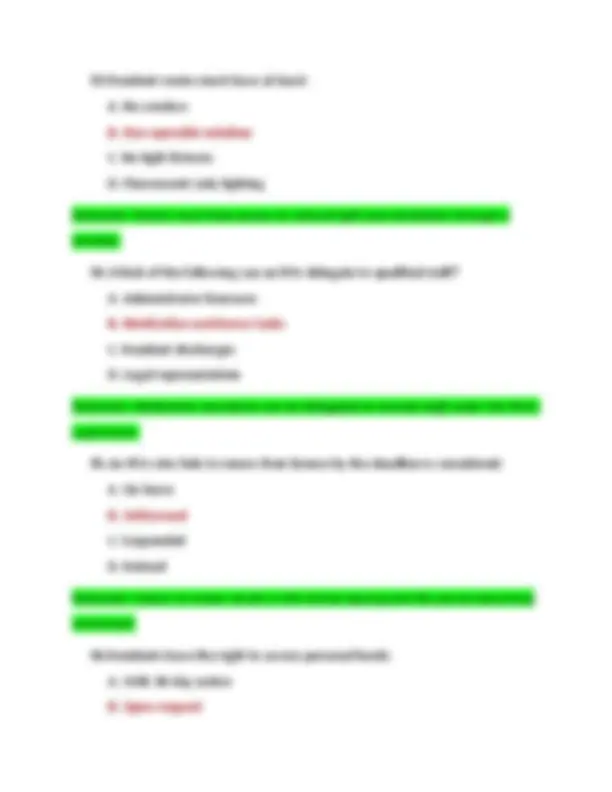
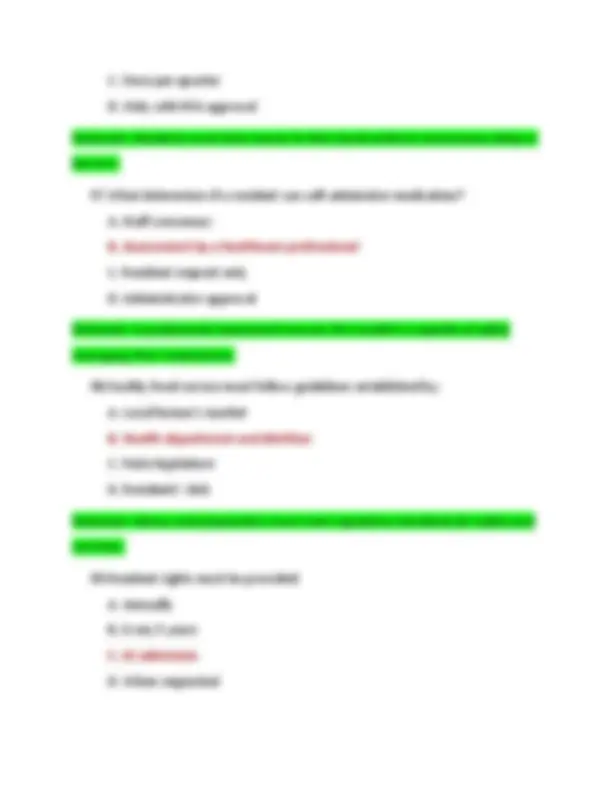
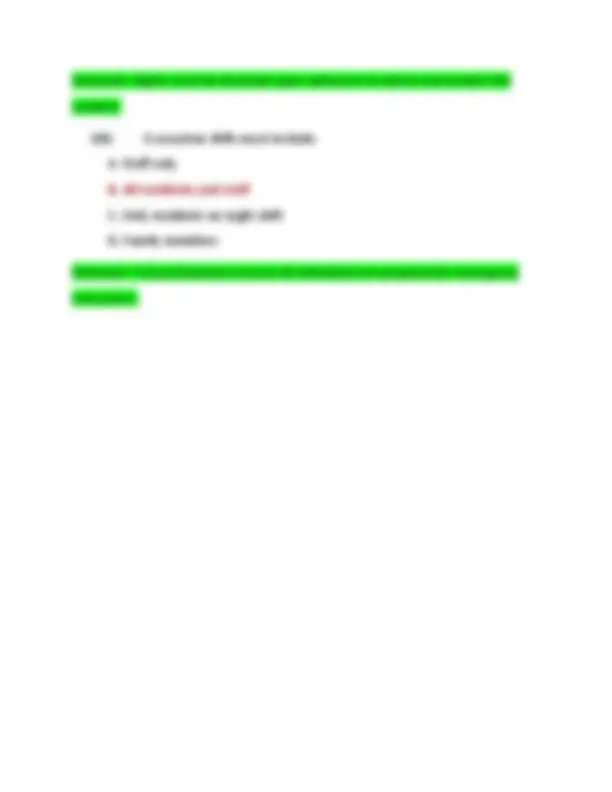


Study with the several resources on Docsity

Earn points by helping other students or get them with a premium plan


Prepare for your exams
Study with the several resources on Docsity

Earn points to download
Earn points by helping other students or get them with a premium plan
Community
Ask the community for help and clear up your study doubts
Discover the best universities in your country according to Docsity users
Free resources
Download our free guides on studying techniques, anxiety management strategies, and thesis advice from Docsity tutors
Nevada Residential Facility Administrator (RFA) license Questions And Correct Answers (Verified Answers) Plus Rationales 2025 Q&A | Instant Download
Typology: Exams
1 / 33

This page cannot be seen from the preview
Don't miss anything!


























Rationale: NAC 654.016 specifies that the administrator of record is the individual listed on the facility’s state license issued by the Division of Public and Behavioral Health. Nevada Legislature
B. Compliance with NAC 654.210’s new exception language C. Referral fees below $ D. Agreement filed with the Attorney General Rationale: The 2024 update (R105-24P) amends NAC 654.210, authorizing RFAs to pay incentives to senior-living referral agencies when the arrangement complies with the Board’s specified safeguards. Nevada Legislature
Rationale: Nevada’s Residential Facilities for Groups statute (NRS 449.017) defines such a facility as one that provides care for three or more unrelated individuals, thus triggering the RFA requirement. 11.Fire-drill records must demonstrate that evacuation can be completed in no more than: A. 2 minutes B. 3 minutes C. 5 minutes D. 7 minutes Rationale: Nevada life-safety rules mirror the 3-minute evacuation benchmark used nationally for small-facility drills to protect residents with limited mobility. 12.Incident reports involving resident injury must be retained for at least: A. 6 months B. 1 year C. 2 years D. 5 years Rationale: Record-retention schedules in NAC 449 require residential facilities to keep incident documentation for a minimum of two years to facilitate surveyor review and litigation defense. 13.Resident room temperatures must be maintained between: A. 65 °F – 75 °F B. 72 °F – 82 °F C. 68 °F – 80 °F D. 70 °F – 85 °F
Rationale: Prompt 24-hour reporting allows state oversight agencies to investigate serious events affecting resident safety. 17.Facility grievance policies must stipulate investigations are completed within what maximum time? A. 24 hours B. 72 hours C. 5 business days D. 10 business days Rationale: Rapid 72-hour grievance investigation ensures timely resolution and documentation of resident or family concerns. 18.Unlicensed caregivers must receive at least how many initial training hours under Nevada rules? A. 8 hours B. 16 hours C. 20 hours D. 24 hours Rationale: NAC 449 requires a minimum of 16 documented orientation hours covering infection control, resident rights, and emergency procedures. 19.Hand hygiene must be performed by staff at what minimum points of care? A. Before medication administration only B. Before and after every resident contact C. Only after contact with bodily fluids D. Once each hour during rounds
Rationale: CDC-aligned infection-control standards mandate hand hygiene immediately before and after contact with each resident to break the chain of infection. 20.The maximum acceptable evacuation-time goal for a nighttime fire drill is: A. 4 minutes B. 5 minutes C. 6 minutes D. 8 minutes Rationale: Allowing up to six minutes at night accounts for reduced staffing while still meeting life-safety code objectives. 21.Physical restraints may be used only if: A. Ordered verbally by any staff member B. Authorized by a healthcare provider and documented in the care plan C. Requested by family D. Approved by the resident council Rationale: Both state and federal regulations require a provider’s order, informed consent, and care-plan documentation before restraint use to safeguard resident rights. 22.An RFA must report suspected elder abuse to law enforcement or Adult Protective Services within: A. The next business day B. 24 hours C. 48 hours D. 72 hours
Rationale: Nevada statutes guarantee residents the right to present grievances without fear of reprisal, ensuring their autonomy and protection. 26.An RFA must post the facility’s state license in: A. The administrator’s office B. A locked personnel file C. A conspicuous public location D. Near the fire alarm panel Rationale: Nevada law requires licenses to be displayed in a visible and public place to confirm to residents and visitors that the facility is authorized to operate. 27.Which of the following must be included in each resident’s written admission agreement? A. Social Security number B. Family visitation schedule C. Fee schedule and refund policy D. Name of the administrator Rationale: NAC 449 requires that financial terms, including charges and refund policies, be clearly documented in the admission contract to ensure informed consent. 28.A resident's care plan must be reviewed and updated at least: A. Once a year B. Every 3 months C. Only when there's a change in condition D. Every 6 months
Rationale: To keep care plans relevant and responsive to changing needs, NAC 449 mandates quarterly reviews. 29.If an RFA receives a substantiated complaint, they must retain the documentation for: A. 6 months B. 2 years C. 3 years D. Until the resident is discharged Rationale: Documentation of complaint resolution must be maintained for a minimum of two years to comply with oversight and audit requirements. 30.Which of the following residents would be eligible for admission into a residential facility for groups? A. A resident needing continuous IV therapy B. A resident with stage 4 pressure ulcers C. A resident requiring 24-hour skilled nursing D. A resident needing assistance with activities of daily living (ADLs) Rationale: Residential facilities are designed for individuals needing assistance with ADLs but not continuous skilled nursing or acute care. 31.The RFA must ensure that tuberculosis (TB) testing for staff occurs: A. Only upon hiring B. At hire and annually thereafter C. Every two years D. Only if symptomatic
Rationale: Resident funds must be used for appropriate, documented personal needs—gambling is not an authorized expense. 35.In Nevada, what is the minimum age required to be licensed as a Residential Facility Administrator? A. 18 B. 21 C. 25 D. 30 Rationale: Applicants must be at least 21 years old to qualify for an RFA license per state licensure requirements. 36.Who is responsible for implementing corrective action following a facility inspection? A. Maintenance director B. Administrator (RFA) C. Nursing supervisor D. Surveyor Rationale: The RFA is legally accountable for ensuring that any deficiencies identified during inspections are corrected in a timely manner. 37.A resident may be involuntarily discharged only if: A. A family member requests it B. Their roommate files a complaint C. Their needs exceed the facility’s licensed level of care D. They refuse medication
Rationale: Involuntary discharge must be justified by the resident’s care needs surpassing what the facility is licensed or equipped to provide. 38.A resident's record must be retained for how long after discharge or death? A. 6 months B. 1 year C. 5 years D. Indefinitely Rationale: NAC 449 requires records to be kept for a minimum of five years following discharge or death for legal and compliance reasons. 39.During an emergency, who is ultimately responsible for ensuring the facility’s emergency plan is activated and followed? A. The shift supervisor B. The resident council C. The administrator (RFA) D. The local fire department Rationale: The RFA holds responsibility for overall operations and must ensure emergency preparedness plans are implemented. 40.A resident with cognitive impairment has the right to: A. Refuse supervision B. Participate in decisions to the extent they are able C. Leave the facility unaccompanied D. Have all rights removed Rationale: Residents with cognitive impairments retain their rights and must be involved in decisions to the extent they can participate.
C. Every six months D. Annually Rationale: Nevada requires resident councils to meet quarterly to give residents a formal avenue to voice concerns. 45.A facility with 20 residents must have a minimum of how many staff on-site at all times? A. 1 B. 2 C. 3 D. 4 Rationale: Staffing ratios increase with resident count; a 1:6 ratio during daytime hours would require at least 3 caregivers for 20 residents. 46.Which agency investigates complaints of elder abuse in Nevada residential care homes? A. Local police B. Medicaid Fraud Unit C. Adult Protective Services (APS) D. Ombudsman program Rationale: APS is the state-designated agency responsible for investigating elder abuse, neglect, and exploitation. 47.The RFA must ensure that residents are allowed how many hours of outdoor access per week (weather permitting)? A. 1 hour B. 3 hours
C. 5 hours D. 10 hours Rationale: Best practices and state guidance recommend a minimum of 3 hours per week for outdoor access, supporting mental and physical health. 48.Who must approve the use of bed rails for residents in a residential facility? A. The administrator B. The resident’s physician C. The facility nurse D. The local health department Rationale: Use of bed rails is a restraint and must be medically justified and approved by the resident’s physician. 49.An RFA is legally required to provide reasonable accommodation for residents with: A. Criminal backgrounds B. Disabilities C. Foreign citizenship D. High income Rationale: The Americans with Disabilities Act (ADA) requires facilities to provide reasonable accommodations for residents with disabilities. 50.All fire extinguishers in the facility must be inspected: A. Only at installation B. Monthly C. Quarterly D. Every two years
Rationale: Funds exceeding $50 must be deposited in a resident trust account within 5 days to ensure financial protections. 54.Which entity certifies administrators in Nevada? A. Nevada Medicaid B. CMS C. Board of Examiners for Long Term Care Administrators D. Department of Justice Rationale: The Board of Examiners is the licensing and regulatory body for RFAs in Nevada. 55.In-service training for unlicensed staff must be provided at least: A. Every 2 years B. Every 6 months C. Annually D. When a complaint is filed Rationale: Annual in-service training is required to maintain competency and regulatory compliance. 56.The maximum number of residents allowed in a private room in a residential facility is: A. 1 B. 2 C. 3 D. 4 Rationale: By definition, a private room accommodates one person; two-person rooms are semi-private.
57.Medications administered by facility staff must be: A. Stored in resident closets B. Labeled only with the resident’s name C. Stored securely and labeled properly D. Mixed with food unless refused Rationale: All medications must be secured and labeled per pharmacy and regulatory requirements to prevent errors. 58.How often must the disaster plan be reviewed and updated? A. Every 2 years B. Annually C. Only when there's a disaster D. Every 5 years Rationale: The emergency/disaster plan must be reviewed at least once a year to ensure accuracy and readiness. 59.Incident reports must include which of the following? A. Personal opinion B. Factual account of what occurred C. Future predictions D. Resident’s Social Security number Rationale: Only objective, factual documentation is permitted in incident reports for legal and compliance reasons. 60.The RFA is responsible for ensuring which regular medical service is available to residents? A. MRI scans